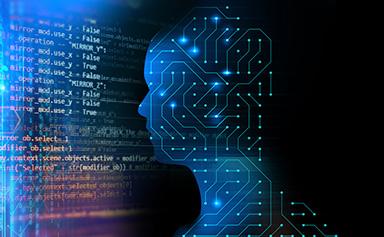While International Women’s Day (March 8) is set aside to commemorate the setbacks and struggles as well as celebrate the indomitable spirit and profound wisdom of women across the globe, in truth we are most inspired by a familiar face.
This IWD, we were keen to showcase the resilience of women we know and are in awe of. And so, we approached two women in Eviden’s Marketing and Communications team — two of the countless women who balance their personal and professional lives with grace, two inspirational leaders among this tribe of accomplished and astonishing women who add wonder and value to our lives.
In conversation with Dorien Wamelink (Ex tennis professional, and Head of Brand & Growth Marketing) and Heidi Idle (Head of Marketing and Communications, Northern Europe & Asia Pacific), we got a glimpse of how they lead by example, stand steadfast and stand tall, and inspire inclusion among all those around them.
Let’s take a look:
-
This year’s IWD theme is #InspireInclusion. What does this mean for you?
Dorien: For me, it is about the need to continue the global fight and attention for gender equality and doing it together as it is far from over. Even countries that are perceived to be advocates of women’s empowerment still have much to improve on, to keep breaking down barriers and create empowering environments.
Heidi: For me, it’s about creating environments (in society, with friends and family or in the workplace) where everyone feels valued, respected, and empowered to contribute regardless of their background, identity, or characteristics.
Overall, it’s also about creating positive vibes —laughter and having fun are essential components of inclusion as they create opportunities for connection, break down barriers, and promote a sense of belonging and positivity among individuals. Encouraging laughter and fun in various settings can help to cultivate an inclusive culture where everyone feels valued, respected, and empowered to be themselves.
-
When did you first hear of inclusion?
Heidi: My earliest encounter with the concept of inclusion occurred when I was just six years old. My parents and I had left the USA to return to their roots in Scotland, and I vividly recall standing at the garden gate of our new home, surrounded by curious local children. Innocently, they asked me if I had a Cadillac, which I interpreted as a reference to the American car. However, to my surprise, they were inquiring about my religious affiliation, specifically if I was Catholic.
Confused and somewhat taken aback, I retreated into the house to seek clarification from my parents. It was during this conversation that I first grasped the significance of inclusion and acceptance in society. My parents gently explained that regardless of our religious beliefs or cultural backgrounds, everyone deserves to be treated with respect and dignity. It was a pivotal moment for me, as I realized that the values of inclusivity and equality that I had embraced in my American kindergarten were not universally practiced. This early experience left a lasting impression on me!
Dorien: In my past life (a long time ago) I was a tennis professional and especially during that time in my life, when I set foot on the international WTA tennis tour, was when I was surrounded by the topic that female tennis players were not paid equally in Grand Slam tournaments.
-
Who has been your ultimate IWD role model? How has her act of inclusion inspired you?
Dorien: My inspiration for inclusion and Women´s Day is tennis legend and campaigner for women’s rights, Martina Navratilova. But ever since, there are so many great role models that have inspired me and keep inspiring me. I am now living in Spain and while some outsiders think of Spain as having a macho culture, well you must come and feel and see what is happening here. There are so many great people here that are fighting the good fight together and creating this collective effort, realizing great initiatives and realizing changes for many, from all walks of life.
Heidi: My ultimate inspiration for International Women’s Day is my late grandmother. Born in Scotland in 1922, she was brought up in a time of great upheaval and uncertainty during her teenage years, to live in Australia, to return when the second World War broke out and was posted to London to serve as a nurse, experiencing firsthand the devastation wrought by the bombings.
Despite the challenges of wartime in Great Britain, she exhibited remarkable resilience and courage. After marrying a soldier and starting a family, divorce led her to navigate life as a single mother back home in Scotland. In an era where societal norms often marginalized women in her position, she defied expectations and forged her own path, working diligently as a Scottish Government civil servant to provide for her family.
What truly distinguished my grandmother was her steadfast commitment to inclusion and equality. She imparted upon me the invaluable lesson that every individual, regardless of background or circumstance, deserves to be treated with dignity and respect. Her unwavering belief in the importance of embracing diversity and fostering belonging resonates with me to this day.
Despite being viewed as an outsider in our close-knit Scottish community due to her status as an unmarried working woman, she remained undaunted, extending kindness and acceptance to all she encountered. My grandmother’s legacy serves as a beacon of inspiration, reminding me of the power of resilience, compassion, and inclusivity.
-
If IWD is to be celebrated by everyone — women and allies — how can each of us inspire inclusion in your different circles daily?
Heidi: At Eviden we really do embrace DE&I. Our ‘Empower’ program focuses on mid-career consultants who identify as black and/or female minority ethnic. Now in its third year, ‘Empower’ not only enables employee networking, but also equips participants with the tools and support to progress their career journey. The six-month programme consists of two elements: a peer group network, and a 1-1 executive sponsorship scheme.
We’re also proud to have partnered with Atos, Google and VMWare this year, showcasing our commitment to tackling underrepresentation in the technology industry and improving diversity at the Changing Face of Technology event. It is an annual career and mentorship program that aims to tackle underrepresentation and empower students, especially those from a diverse background to consider a career in the technology sector. This is truly inspirational – check this out.
Dorien: I´m heading up Brand and Growth Marketing for the new brand Eviden, that we launched last April. For us, linking a brand to a higher purpose is critical. We want to connect with people in a way that resonates beyond a specific product or service to find a platform embracing the view that we are purpose-driven… That we want to contribute, making a positive impact through data and technology, now and for generations to come.
And as we are a young brand, we need to further strengthen that view and create a platform that goes beyond a 1-day opportunity. Why one day? What about the other 364 days?
-
Inclusion is a very broad term. Can you share examples of types of inclusion?
Heidi: We should aim to share success stories of individuals or organizations that have successfully implemented strategies to narrow the wealth gap and promote financial inclusion. Designing and implementing gender-responsive budgets is of real importance with some great examples showcased by UN Women. Read all about it here.
With my marketing hat on what I think is also good to see is that company brands are evolving and recognizing more the growth opportunities in women’s elite sports and are keen to invest and play their part in helping to develop the female game.
Another example, at Eviden, is our Reverse Mentoring scheme, which for the last three years approximately 300 employees have participated in. Senior colleagues become the mentee and junior colleagues the mentor – providing role reversal compared to typical mentoring schemes. The scheme was jointly developed by the organization’s cultural and ethnic diversity network and the age diversity network, bringing people together across different backgrounds and generations.
-
Gender biases are sometimes deep-rooted in our culture as well as our social structures. How deeply have these or do these continue to affect you?
Heidi: My awareness of gender biases in the workplace was sparked by a pivotal moment during my first-ever job interview. In my early 20s, I found myself sitting across from the male director of the company, eagerly anticipating the opportunity to prove my worth. However, what transpired next left a lasting impression on me.
In the midst of the interview, the director posed a question that caught me off guard, “Are you the sort of girl that will go out in her lunch hour and get your hair done?”
The question was laden with assumptions and stereotypes about women’s priorities and interests, completely unrelated to my qualifications or suitability for the role.
In that moment, I realized the prevalence of gender bias in the workplace. It was clear that, even in the professional sphere, outdated notions of gender roles and expectations persisted. Despite the discriminatory nature of the question, I did get the job, proving that my capabilities and qualifications were indeed recognized.
Note to self: I still need to book a hair appointment in my lunch break after all these years.
While progress has undoubtedly been made in recent years, there is still much work to be done to eradicate gender biases from the workplace entirely.
-
Diversity, equity and inclusion (DEI) are prominent pillars in every organization. How do you see these at work around you?
Heidi: DE&I has always been a fundamental aspect of my approach to the workplace, particularly in my role within marketing and communications. Over the years, I’ve had the privilege of leading diverse teams comprised of individuals from various parts of the world, each bringing their unique backgrounds and perspectives to the table.
What sets my approach apart is my genuine enthusiasm for learning about my colleagues’ backgrounds and cultures. I actively seek opportunities to engage in conversations and ask questions that allow me to deepen my understanding and appreciation of diversity. Rather than shying away from potentially uncomfortable discussions, I embrace them wholeheartedly, recognizing their importance in fostering a more inclusive workplace environment.
In situations where I sense someone may not be feeling included, I make it a point to pause and reflect on the underlying reasons. Whether it’s due to cultural differences, unconscious biases, or systemic barriers, I strive to identify the root cause and take proactive steps to address it.
Moreover, I ensure that DE&I principles are integrated into all aspects of my work, including marketing and communication activities. From selecting images that reflect diversity and representation to ensuring accessibility in content and design, I prioritize inclusivity in every project I undertake.
-
What, according to you, is the first step in inspiring inclusion? And how soon can one start?
Dorien: Be supportive, helpful and respectful as a worker to your colleagues, as a daughter or son to your parents, as a true friend to your friends and as a human to anyone around you – on the street, in shops, in restaurants, and at clubs. Embrace diversity and inclusion.
And specifically for leaders in the workplace: create a sense of belonging. Create safety for team members to be who they are. And create gender diverse teams. Diversity makes greater decision-making!
Heidi: Inclusion to me means recognizing the inherent value and dignity of every individual. It’s about creating spaces where everyone feels seen, heard, and valued, whether at work, among friends, or in social settings.
Inspiring inclusion is a commitment to building a more equitable world. It requires ongoing reflection, action, and collaboration as we work together to create opportunities for everyone to thrive.


